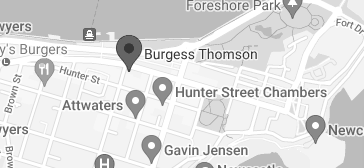Subleases
Property & Conveyancing
We’re With You Every Step Of The Way
When you sublease a retail or commercial property that you are leasing, you are transferring a part of your interest in the relevant property to another party, who will become the “subtenant”. You can sublease part of the property, such as a room or section of the premises, meaning you are not giving up the entire property. This can be advantageous if you wish to make additional revenue or if you have a part of the premises you are leasing which is currently not used. Alternatively, you can also sublease the entire premises, as long as it is for a period within the lease period.
Under such an agreement, you will be treated as the landlord by the subtenant and they will pay rent to you. This also means that you will be liable on behalf of the subtenant for any damage or loss that may occur (potentially also dependent on your agreement with your landlord or the subtenant). Thus, your obligations under your lease with your landlord are still present.
It is a good idea to set up a Deed of Consent to sublease and a sublease agreement. Any procedures of assigning or subletting your lease should be set out in your agreement to lease. Burgess Thomson can help with this by going through your initial agreement with your landlord to ensure you are aware of any obligations you have under the original agreement as well as ensuring that your subletting agreement does not clash with these.
GET A QUICK QUOTE
Enter your details for an obligation free quote.
Find out more about how we can help Buying Property.
FAQ's
Is there a difference between subletting and assigning your lease?
There is a significant distinction between subletting and assigning your lease and this can have a significant (and ongoing) impact on your obligations to the landlord. An assignment of lease usually occurs when you want to assign your interest in the lease to another party- the assignee. This means you will be transferring your entire proprietary interest to the assignee. Subletting occurs when you transfer part of your interest in the property to another party.
Why would you want to sublet or assign?
Assigning or subletting your lease can be a personal or business-based decision, including if you are selling your business, are moving to a new premises, winding down your business or seeking additional revenue by subleasing the premises.
Burgess Thomson can help you in deciding whether subletting the premises you are leasing is a beneficial decision and also in setting up the sublease to ensure that you are not in a disadvantageous position.
What about subletting retail premises?
Generally, laws specific to the state within which your premises is located will govern the conditions of your sublease. This can include laws around the requirements to gain the landlord’s consent and stipulating what happens in the circumstance that the landlord doesn’t respond to a request for consent. Our team at Burgess Thomson can help you ensure that your sublease is compliant with relevant New South Wales legislation and help you overcome any hurdles that may be presented in this regard.



